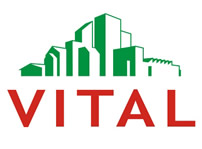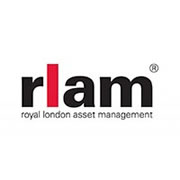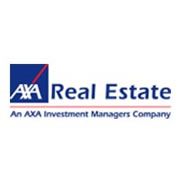Vital EPC Plus Upgrade
Energy Act 2011 and MEES (Minimum Energy Efficiency Standards) 2015
This legislation introduces a draconian obligation on commercial property owners and asset managers. As from April 2018 property owners will not be allowed to let or sell commercial buildings that have an EPC Grade of F or G. Around 20% of all commercial buildings fall into this category. This will have a huge impact on marketability and value. Property owners should find out which of their buildings fall into this category and immediately prepare a plan to either sell the property or upgrade out of this “danger zone”.
MEES - Energy Act 2011 is already biting - Newsletter
MEES - Energy Efficiency Regulations 2015 - CPD Presentation Summary
MEES - How to prepare your own EPC Portfolio Audit
MEES - The Exemptions for Domestic properties
MEES - The Survivor's Guide to the Energy Efficiency Regulations 2015
MEES - Vital EPC Plus - Example Report - Shopping Arcade
Vital EPC Plus recommendations report
We have extensive experience in helping property owners upgrade their existing property assets. We have surveyed thousands of commercial buildings across the UK and we have built up an impressive knowledge of the cost effect improvements required to improve a buildings EPC grade. We use sophisticated modelling software to evaluate options available for upgrades and these can be costed by the professional team so that the most cost effective solution can be implemented. Many landlords are now seeking to upgrade their buildings to be EPC Grade C or better which will future proof these buildings against differential Business Rates and a whole host of other valuation sensitive variables.
The business case to improve existing assets
Over the last five years the pressure to improve the energy efficiency of commercial buildings has increased greatly. The business case for upgrading property assets has never been stronger. The following statutory and financial drivers demonstrate why every single building in the UK is a target for energy performance improvements.
Asset Valuation
The RICS introduced the Sustainability and Commercial Property Valuation Paper in September 2009. This requires all RICS valuers to factor in sustainability performance to their asset valuations. There is increasing evidence that buildings with a better energy performance should be valued higher than those that do not.
Energy Costs
The price of electricity, gas and oil has increased rapidly over the past decade. Now that Peak Oil has been reached the world’s rapidly growing population causes huge volatility in energy prices. Well informed tenants are now factoring in annual energy costs when evaluating corporate real estate acquisitions.
Bank Lending
For some time many commercial property lenders have been insisting on high EPC Grades before authorising loans. For example Deutsche PostBank will only lend on assets graded C or above, which represents a high level of energy efficiency. HSBC Bank will not lend on assets that are graded F or G unless there is a robust plan of how the building is going to be upgraded. This is already having an impact on asset valuation.
Business Rates
Almost 20% of the entire stock of buildings in the UK now has an Energy Performance Certificate (EPC) grade. All of this information sits on a government database. There is increasing expectation that the Government will introduce differential Business Rates based on a building’s EPC Score.
Sustainability Investment Benchmarking
Several international indices are now emerging to rank corporates on their sustainability. This has extended to commercial property investment. In June 2009 the IPP/IPF Sustainable Property Index was launched in the UK.
UK Government’s own Estate
The Office for Government Commerce (OGC) has made it a requirement that all buildings that the Government acquires must be EPC Grade C score 64 or better. This is a stringent requirement since only the most energy efficiency office buildings achieve an EPC score of 64 or better.
Tightening Building Regulations
Since 2002 the energy efficiency performance required by Building Regulations has increased dramatically. Building Regulations were further tightened in 2006 and again in October 2010. These incremental improvements are moving the UK rapidly towards the goal of “zero carbon” emission commercial buildings by 2019.
Corporate Reputation
Many large corporates with global brands to protect are insisting on energy efficient buildings when undertaking new acquisitions. For examples Coca Cola insisted on their new HQ in Uxbridge to be rated BREEAM Very Good, which shows a high level of sustainability and energy efficiency. Some corporates are seeing the value of operating from visable sustainable buildings in helping them attract the best young graduates from the so called Generation Y.
Our Clients
VITAL
Grenville Court, Britwell Road, Burnham, Slough SL1 8DF
Tel: 0345 111 7700
Email: info@vitaldirect.co.uk
Company name: Vital Direct Limited
Company number: 11313851
Registration country: England & Wales
Registered office: Grenville Court, Britwell Road, Burnham, Slough SL1 8DF
VAT number: 296672057GB


































